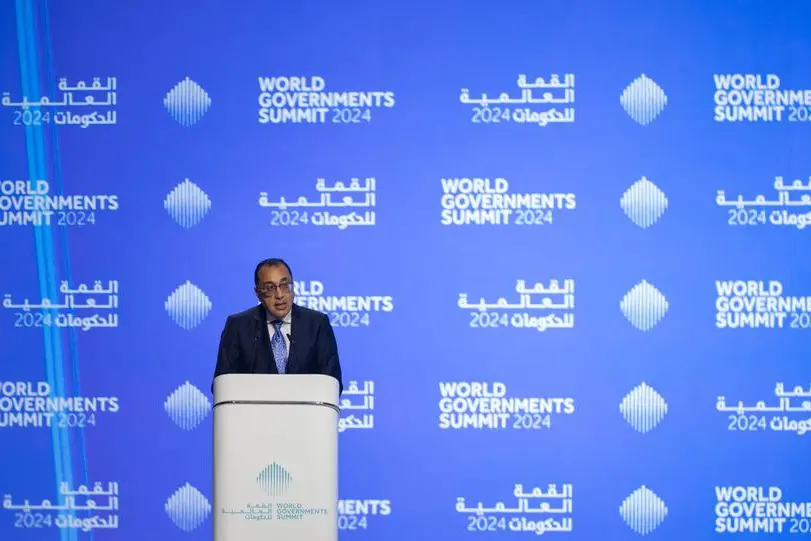PHOTO
The Egyptian economy, with its huge markets, skilled human capital and diversified sectors, offers investment opportunities for both local and foreign investors, and the government is working to create enabling environments for such investors, Prime Minister Mostafa Madbouly said while addressing the World Government Summit (WGS) in Dubai on Monday.
Speaking in Arabic, the prime minister said the global economy is facing unprecedented challenges as geopolitical tensions, higher inflation rates and riding interest rates have all impacted the economies of the developing countries.
Madbouly said the Egyptian government has adopted different policies to mitigate the negative global effects on its economy and has undertaken structural amendments to encourage the private sector to participate in growth policies. And because of their contribution Egypt was one of the few countries to achieve a growth rate of 4.3% in 2020-2023, he noted.
He said the government has formulated a plan to increase GDP while providing up to eight million new job opportunities and support sectors like infrastructure in order to attract more investments, both foreign and domestic. Madbouly said the partnership model between the private and public sectors has succeeded and there are now more than 1,000 private sector companies that take part in national programmes which will help improve the Egyptian economy on all levels.
At the same time the country was also trying to implement the UN Sustainable Development Goals (SDGs), while taking into consideration Egypt’s Vision 2030, he added.
The "Dignified Life Initiative" for rural development was launched by President Abdel-Fattah Al-Sisi in 2019 and aims to improve the standards of living, infrastructure, and services for the more than half of Egypt’s population that lives in the villages.
Madbouly said Egypt is keen to uphold its commitments to decrease emissions and mitigate climate change effects. As part of its green transformation, the state is trying to increase the share of renewable energy to 42% by 2028. This includes efforts to implement a green hydrogen strategy where Egypt becomes a regional hub for green hydrogen by 2030, he added.
(Writing by Brinda Darasha; editing by Seban Scaria)





















